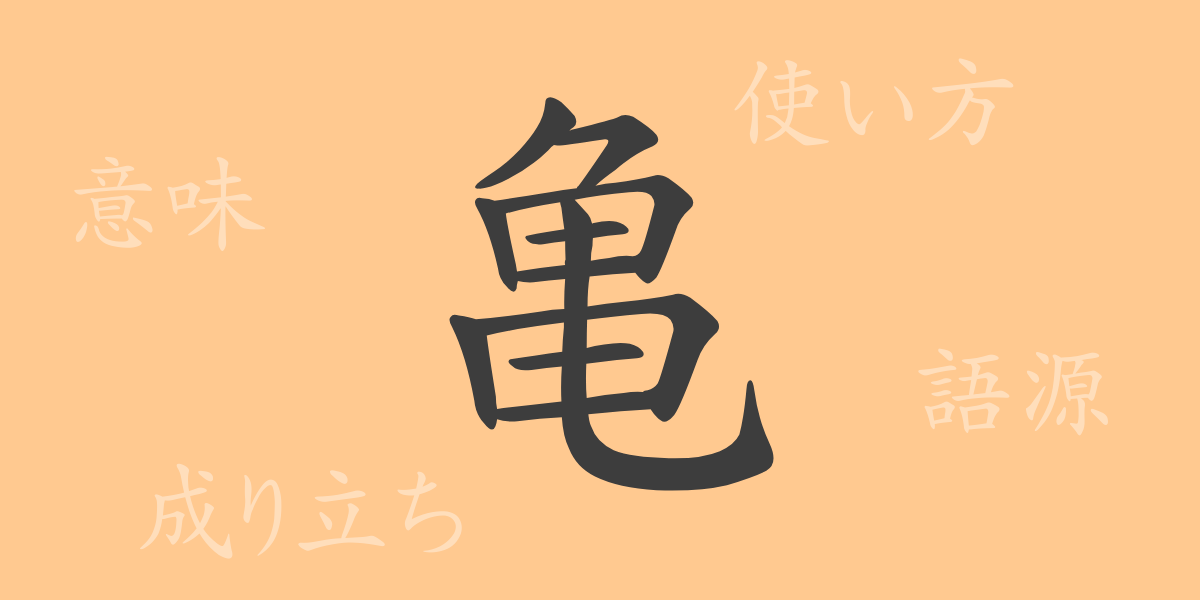Turtles are not just animals. Their existence has been a mystical symbol in many cultures since ancient times, and in Japan, they hold a particularly significant meaning. In this article, we delve deep into the commonly used Japanese Kanji “亀” (かめ – Kame), exploring its origins, meanings, usages, readings, and extending to phrases and proverbs related to turtles. The leisurely pace of turtles carries many lessons and has quietly influenced our lives. You, too, will surely feel the charm of turtles.
The Origins of the Kanji for Turtle (Etymology)
The character “亀” (かめ – Kame) is a pictograph representing an animal with a shell. In ancient China, turtle shells were inscribed with divination texts, linking turtles deeply with fortune-telling and mysticism. With the introduction of Kanji to Japan, these cultural aspects were transmitted, and turtles came to be revered as symbols of longevity and prosperity.
The Meaning and Usage of Turtles
Literally, a turtle refers to an animal belonging to the order Testudines, but metaphorically, it can also represent longevity, immortality, and good fortune. Additionally, it is sometimes used to denote slowness. Depending on the context, it can also signify solidity or steady progress.
Readings, Stroke Count, and Radical of the Kanji for Turtle
The Kanji “亀” (かめ – Kame) has characteristics related to its shape and meaning.
- Readings: On’yomi as “キ” (キ – Ki), Kun’yomi as “かめ” (かめ – Kame)
- Stroke Count: A total of 11 strokes
- Radical: Turtle radical (きへん – Kihen)
Phrases, Idioms, and Proverbs Using the Turtle and Their Meanings
Idioms and proverbs that include the turtle reflect its characteristics strongly. For example, “亀の甲より年の功” (かめのこうよりとしのこう – Kame no kou yori toshi no kou) means that years of experience and achievements have more value than appearances. “亀の歩み” (かめのあゆみ – Kame no ayumi) denotes a very slow progression. These expressions give deep meaning to our language through the symbolic traits of the turtle.
Summary on Turtles
Due to their unique appearance and ecology, turtles have occupied a special place in many cultures. In Japan, turtles are respected as symbols of longevity and good fortune, and their influence can be seen in language and expressions. Through this exploration, we have rediscovered the rich history and cultural value that turtles hold. The slow pace of turtles contains important lessons for us, especially in a modern society that often prioritizes speed.

























